Egypt Culture and Customs: Everything You Need to Know (2025)
Last Updated: December 27, 2024
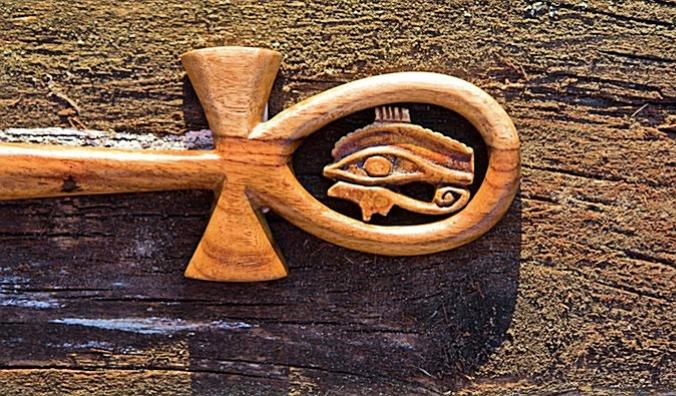
Our Commitment to Independent & Unbiased Information
At TrippVibes, we are committed to providing you with independent, unbiased information, free from any outside influence. Our insights come from unbiased research and analysis. We are here to give you the objective, reliable information you need to plan your perfect trip to Egypt.
Planning Your Trip to Egypt: Essential Cultural Insights
Picture yourself sipping mint tea in a bustling Cairo café, the scent of spices hanging in the air. This guide will help you experience the real Egypt in 2025, from ancient wonders to modern marvels.
Key Facts and Statistics about Egypt
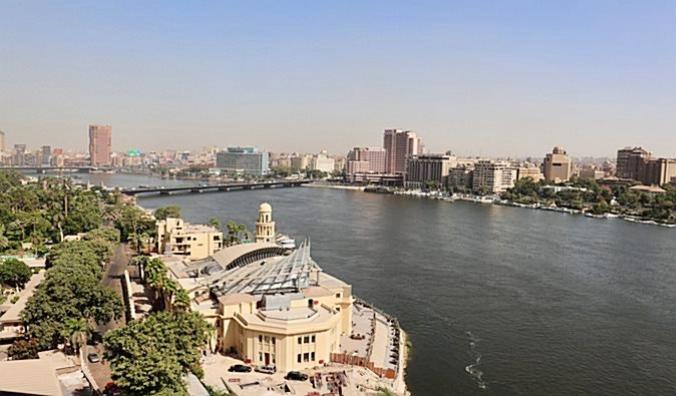
Before you pack your bags, here is your cheat sheet: essential facts and stats for your 2025 travelto Egypt:
|
FACT / TOPIC |
STATISTICS / DETAILS |
WHY IT MATTERS FOR TRAVELLERS |
|---|---|---|
|
Estimated Population (2025) |
Projected to exceed 114 million nationwide, with over 23 million in Greater Cairo – Giza. |
Expect busy cities, particularly during peak season. Advance booking for accommodation and transport is advisable. |
|
Currency |
The Egyptian pound (EGP or LE) is the official currency. Credit cards are increasingly accepted in tourist areas, but cash remains essential, especially in smaller towns and markets. Exchange currency at banks or licensed exchange bureaus for the best rates. |
Carry a mix of Egyptian pounds and a no fee debit/credit card for larger purchases. Avoid exchanging money on the street. Be aware of exchange rates and potential fees. Check our comprehensive article about Money Guide for Egypt. |
|
New Administrative Capital & Upgrades |
State-led infrastructure projects east of Cairo aim to ease congestion. Metro line expansions are underway. |
Improved transport links may simplify travel between areas but allow extra time for potential construction delays or road closures. |
|
Languages in Egypt |
The official language of Egypt is Arabic. Nobiin (Nubian), Bedawi (Bedouin), and Coptic (liturgical) are also spoken. |
Local dialects vary by region. Learning a few Arabic phrases builds rapport – especially outside major tourist zones. Most hotels and attractions use English, but basic Arabic wins smiles. |
|
Climate |
Desert summers can hit 40°C+, milder from November to February. Red Sea coastal areas can remain warm year-round. |
Weather affects your comfort in various regions. Check our comprehensive article about Egypt Weather for details about monthly land & sea temperature, especially if you plan desert excursions, Nile cruises, or beach getaways. |
|
UNESCO World Heritage & Iconic Sites |
Sites include Pyramids of Giza, Abu Simbel, Islamic Cairo, and more. Egypt has multiple UNESCO-protected monuments spanning millennia. |
Cultural landmarks embody Egypt’s ancient heritage. Book tickets online when possible to avoid queues, and plan early-morning visits to beat crowds and midday heat. |
|
Grand Egyptian Museum (GEM) |
Set to be one of the world’s largest archaeological museums, covering an area of 500,000 square metres with over 100,000 artefacts near the Pyramids. |
Offers a unique opportunity to see a vast collection of Egyptian antiquities. Book tickets online in advance once available. Combine your visit with the Pyramids for a comprehensive historical experience. |
|
Historic Cairo Restoration Project (HCRP) |
Historic areas, particularly around Al-Muizz Street, are undergoing restoration projects. |
Explore renovated streets blending historical architecture with modern amenities. Discover smaller museums, workshops, and traditional cafés. |
|
Religious Composition |
Majority Sunni Muslim; sizeable Coptic Christian community |
Religion shapes daily life (e.g., public prayers, Ramadan fasts). Respect dress codes at mosques and churches. Check local customs during major religious events to avoid disruptions. |
|
Tourism & Economy |
Tourism contributes significantly to GDP – over 8% in 2024 according to the World Travel Tourism Council. Red Sea resorts, Nile cruises, and historical tours fuel substantial local revenue. |
Travellers find well-developed infrastructures in popular destinations. Bargaining is common, and savvy money-handling can save costs. Do not forget to check our Money Guide for Egypt for a stress-free trip. |
|
Red Sea Eco-Tourism Initiatives |
Sites like Marsa Alam and a few island reserves are promoting reef protection and sustainable tourism. |
Divers and snorkellers should support eco-friendly practices, using reef-safe sunscreen and choosing sustainable tour operators to help preserve coral reefs. |
|
Growth of Desert Trekking Tourism |
New trekking routes connect the White Desert to Bahariya Oasis, offering immersive eco-tours. |
Adventure travellers can explore unique landscapes, stargaze, and experience Bedouin culture. Be prepared for limited facilities and observe local customs in remote areas. |
|
Cultural Festivals & Events |
Sun Festival at Abu Simbel (Feb/Oct), Sham Ennessim (Coptic Easter Monday), and Ramadan (Islamic lunar calendar). |
Festivals highlight Egypt’s rich history and culture. Travellers can witness unique traditions and customs of Egypt, though crowds may be large during peak times, Booking in advance is recommended. |
|
Unique Oasis & Desert Festivals |
The Siwa Oasis hosts distinctive Amazigh (Berber) celebrations, such as the Siyaha Festival (usually October). |
For culturally immersive travel, plan your visit to coincide with these events. Expect fewer tourists and more conservative dress codes in remote desert communities. |
|
Night-time Culture / Café Scene |
Cairo offers a vibrant late-night scene with 24-hour coffee shops, board game cafés, and Sufi-themed lounges. |
Ideal for exploring beyond daytime tours, but exercise caution, especially as a solo traveller. Maintain appropriate attire and be mindful of your surroundings. |
|
Women’s Leagues (Sports) |
Football, volleyball and hockey have thriving women’s leagues. |
Attending sporting events offers a different cultural perspective. Check local listings for matches in Cairo or Alexandria. |
Understanding Egypt: A Cultural Overview for 2025
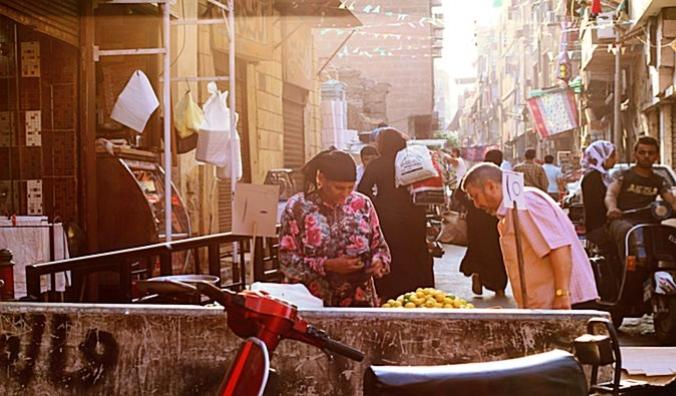
Picture this: ancient wonders standing side-by-side with bustling modern life. That is the magic of Egypt. For centuries, Egypt’s unique location at the crossroads of Africa and Asia has made it a hub for travellers, traders, and empires.
With a population exceeding 114 million in 2024, according to the United Nations Population Fund, and a steady annual growth rate of approximately 1.7%, Egypt’s demographic landscape continues to expand and urbanise. You will see this growth reflected in the amazing diversity of dialects, customs and traditions, food, and daily life across Egypt.
This 2025 Egypt travel guide provides comprehensive information on Egyptian culture and customs, offering valuable insights into Egyptian traditions and social norms for visitors. We have combined cultural insights, academic research, and firsthand experience to create this practical guide for all travellers to Egypt.
We will cover everything from basic greetings to important safety tips, like avoiding Orfi marriages. Furthermore, the guide offers valuable insights into dress codes in rural areas, tips for exploring desert oases and much more.
Why This Guide is Essential for Your Egypt Trip
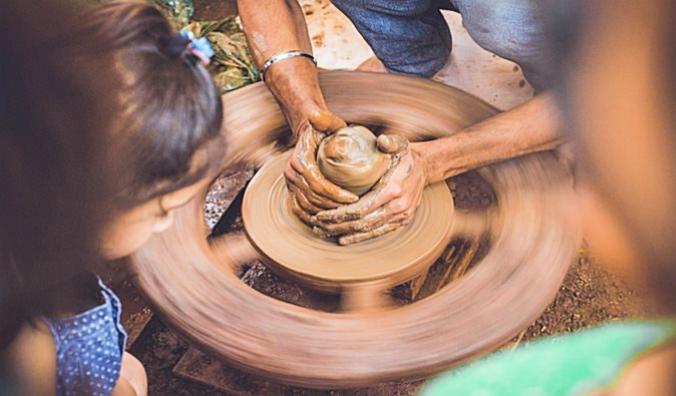
We have walked the streets of Cairo, haggled in the Khan el-Khalili market, and sipped tea with Bedouin families in the Sinai. We researched and experienced Egypt firsthand to create this resource. It helps you avoid tourist traps and discover the real Egypt and it is certainly not just another guidebook:
Research Overview
Official Data
Sources
Forums & Groups
Analysed
Social Media
Posts Reviewed
Traveller Experiences
Documented
This guide is based on information gathered from a comprehensive range of sources, ensuring its accuracy and relevance:
Our Research Methodology
This guide is the result of meticulous research and on-the-ground experience:
For quick answers to common questions about local etiquette, cultural insights and other essential tips for your trip to Egypt, check out Frequently Asked Questions (FAQ) section below.
Booking Your 2025 Egypt Trip Just Got Easier!
Everything You Need To Know About Booking Flights And Hotels. Avoid Costly Mistakes With Our Comprehensive Guide
Further Reading
For your stress-free trip planning to Egypt in 2025, we recommend the following related articles:
Best Time to Visit Egypt: Your Ultimate Weather Guide
Travel Made Easy: Applying for Your Egypt e-Visa Online
Complete Egypt Money Guide: Cash, Cards & Avoiding Scams
The Ultimate Guide to Booking Flights and Hotels in Egypt: All You Need to Know
Unbiased Hotel Reviews (Alexandria, Cairo, Hurghada and Marsa Alam – more coming soon)
You may also find general information about Egypt on the BBC website.
For additional information on visas, budgeting, or accommodation, please consult the external resources provided. While no single resource can fully capture the wonders of both modern and ancient Egypt, this guide provides a solid foundation for exploring its rich history and vibrant culture.
Egypt’s Rich History and Culture – Evolving Demographics
Visiting Egypt in 2025 promises an unforgettable journey through history and culture. Egypt’s culture is steeped in history, stretching back to the time of the pharaohs, whose magnificent pyramids, temples, and tombs continue to captivate the world. On our first trip to Egypt, we were struck by the incredible mix of cultures. The blend of African, Arab, Greco-Roman, Ottoman, and European influences creates a truly unique experience
Most Egyptians live along the fertile Nile River or in the bustling cities of Cairo and Giza. World Population Review projects that the combined population of Cairo and Giza will exceed 23 million by 2025, presenting significant challenges for housing, transport infrastructure, and urban planning.
Despite these urban challenges, Egypt’s renowned hospitality endures. Locals often appreciate visitors’ attempts to speak basic Arabic and frequently extend invitations to share tea and conversation. Embrace a positive and open attitude, and you will discover a truly welcoming Egypt.
The Egyptian Language and Greetings: Essential Phrases and Etiquette
While knowing some Arabic is helpful, you will find that English is widely spoken in tourist areas, making communication easy. However, regional dialects such as Nubian (Nobiin) and Bedouin (Bedawi) are used within specific communities, while Coptic is primarily a liturgical language. Some knowledge of French can be advantageous in business settings.
Even a few Arabic greetings can make a big difference when connecting with locals. As-salamu alaykum (“Peace be upon you”) is a standard greeting across the Arab world, typically followed by the response Wa alaykumu s-salam (“And upon you be peace”). Simpler greetings like ahlan or marhaba also convey a welcoming tone. Learning a few Egyptian greetings can also make a positive impression on locals.
How Egyptians greet each other depends on their relationship and gender. Hugging or hand-holding is common between close male friends. Among women, a friendly greeting may involve kisses on both cheeks. Individual levels of conservatism influence the level of physical contact between men and women. Therefore, men should generally wait for women to initiate a handshake.
Using the right titles also shows respect. Addressing elderly men as Sayyid and older or married women as Sayyida is usually not an issue. But when interacting with professionals such as doctors or professors, use their professional titles.
Connecting with Egyptians: Authentic Cultural Experiences
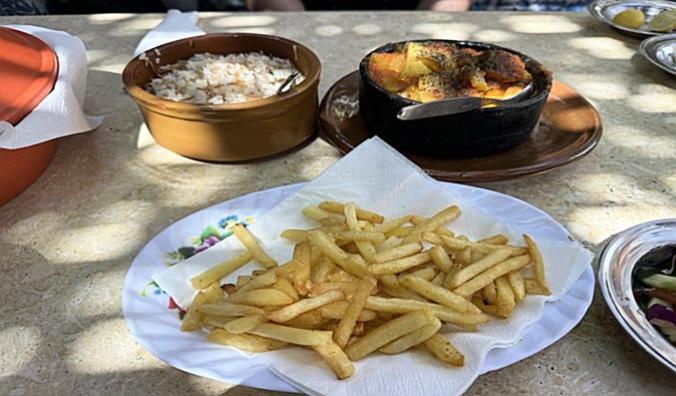
One of our favourite memories was sharing a meal with a local Egyptian family in Luxor. They welcomed us into their home, taught us how to make koshari (a delicious Egyptian dish), and shared stories about their lives. Do not be afraid to step outside your comfort zone and connect with the amazing the Egyptian people – it will enrich your trip in countless ways.
Tip
Learn a few basic Egyptian Arabic phrases. Even a simple ‘shukran’ (thank you) goes a long way. Here a few words that you will find useful:
|
Greetings |
Arabic Script |
Transliteration |
Notes |
|---|---|---|---|
|
Good morning |
صباح الخير |
ṣabāḥ al-khayr | |
|
Good evening |
مساء الخير |
masāʾ al-khayr | |
|
Hello (formal) |
السلام عليكم |
as-salāmu `alaykum | |
|
Reply to “Hello” (formal) |
وعليكم السلام |
wa `alaykumu s-salām | |
|
Hello (informal) |
مرحبا |
marḥaban | |
|
Hello (informal) |
أهلا |
ʾahlan | |
|
How are you? (m) |
ازيك؟ |
ʾizayyik? |
m = masculine |
|
How are you? (f) |
ازيكِ؟ |
ʾizayyiki? |
f = feminine |
|
I am fine, thanks |
الحمد لله |
al-ḥamdu lillāh |
Common response to “How are you?” |
|
Goodbye |
مع السلامة |
ma`a s-salāma | |
|
See you later |
بعدين |
ba`dʾan |
|
Essentials |
Arabic Script |
Transliteration |
Notes |
|---|---|---|---|
|
Please (m) |
من فضلك |
min faḍlak |
m = masculine |
|
Please (f) |
من فضلكِ |
min faḍlik |
f = feminine |
|
Thank you |
شكرا |
shukran |
|
|
You are welcome |
عفوا |
`afwan |
|
|
Yes |
نعم |
naam |
|
|
No |
لا |
lāʾ |
|
|
No, thank you |
لا شكرا |
la shukran |
|
|
It is okay/No problem |
معلش |
ma`lesh |
Versatile phrase |
|
I am sorry (m) |
أنا آسف |
ʾana ʾāsif |
m = masculine |
|
I am sorry (f) |
أنا آسفة |
ʾana ʾasfa |
f = feminine |
|
Numbers |
Arabic Script |
Transliteration |
|---|---|---|
|
One |
واحد |
wāḥid |
|
Two |
اثنين |
ʾithnayn |
|
Three |
ثلاثة |
thalātha |
|
Four |
أربعة |
ʾarba`a |
|
Five |
خمسة |
khamsa |
|
Six |
ستة |
sitta |
|
Seven |
سبعة |
sab`a |
|
Eight |
ثمانية |
thamāniya |
|
Nine |
تسعة |
tis`a |
|
Ten |
عشرة |
`ashara |
|
Useful Questions |
Arabic Script |
Transliteration |
Notes |
|---|---|---|---|
|
Where is…? |
فين …؟ |
fēn…? |
|
|
How much? |
كام؟ |
kam? |
Useful for bargaining |
However, discussions about politics in Egypt call for caution. Whether the topic is Israeli-Palestinian relations, Western interventions or internal governance, some individuals will engage enthusiastically, while others may prefer silence. When these sensitive topics come up, be respectful and understanding.
Travel Made Easy
Read Our Comprehensive Guide About Applying For Your Egypt E-Visa Online
Become a TrippVibes Insider!
Get our team’s latest firsthand insights, inspiring stories, and exclusive tips for truly authentic journeys, delivered straight to your inbox.
Exploring Egypt’s Diverse Cultural Heritage
Egypt is a melting pot of different ethnicities and cultural influences – it is fascinating!
Journey towards Aswan insouthern Egypt and bordering northern Sudan, and encounter the Nubian people. Renowned for their unique musical traditions, vibrant artistry, and strong family bonds, Nubians contribute a distinct thread to Egypt’s cultural fabric.
Further east, in the Sinai Peninsula and Eastern Desert, Bedouin tribes maintain their ancestral heritage. Their nomadic and semi-nomadic lifestyles are deeply rooted in herding practices and an unparalleled knowledge of desert navigation.
Meanwhile, the Siwa Oasis is home to the Berber (Amazigh) community. Here, the Siwi language and distinct customs offer a glimpse into a culture separate from the traditions of the Nile Valley.
Coastal cities, such as Alexandria, showcase a captivating blend of historical influences. Remnants of Greek and Ottoman heritage intertwine seamlessly with modern Egyptian culture and identity, creating a truly unique experience.
Furthermore, a strong sense of regional identity permeates Egyptian culture. From Cairo to Aswan, and extending to the tranquil oasis communities, local pride manifests in distinct accents, diverse culinary traditions and even variations in architectural styles. These cultural nuances make Egypt’s heritage so vibrant and diverse.
Religion in Egypt: A Tapestry of Faiths and Traditions
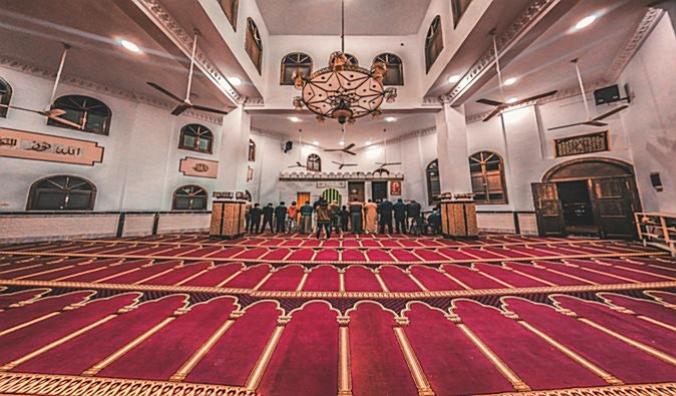
The official religion of Egypt is Sunni Islam. However, Coptic Orthodox Christianity maintains a prominent presence, particularly in Upper Egypt.
You will see the influence of faith everywhere in Egypt, from the daily calls to prayer to the Sunday church services. The melodic calls to prayer echo from mosques throughout the day, while on Sundays, Coptic families gather in centuries-old churches and monasteries for worship.
One of the most important religious sites is the Al-Azhar Mosque in Cairo, home to one of the world’s oldest universities, established in 972. Equally significant is the Coptic Monastery of Saint Anthony, nestled in the Eastern Desert, and believed to be the oldest continuously inhabited Christian monastery globally.
During Ramadan, the streets come alive after sunset. Families gather for iftar (the breaking of the fast), sharing delicious meals and celebrating together. It is a special time to witness the spirit of community and generosity.
Tip
If you are visiting during Ramadan, be respectful of those who are fasting and avoid eating or drinking in public during daylight hours.
Celebrating Egypt: Festivals and Holidays in 2025
Egypt offers a rich calendar of vibrant festivals and events.
Witness the awe-inspiring Abu Simbel Sun Festival, a testament to ancient Egyptian ingenuity. Twice a year, around 22 February and 22 October, the sun’s rays penetrate deep within Ramses II’s temple, illuminating its inner chambers. We shall never forget the feeling of standing before the temple of Abu Simbel as the first rays of sunlight illuminated the inner sanctuary. It is a truly magical experience that connects you to the ingenuity of the ancient Egyptians.
Tip
Book your trip well in advance if you want to witness the Abu Simbel Sun Festival, as accommodation and tours fill up quickly
Another key event is Sham Ennessim, a joyous celebration of spring arriving the day after Coptic Easter. Families traditionally gather in parks for picnics, enjoying decorated eggs and the fresh air. Public beaches also become lively hubs of activity, although visitors are advised to dress modestly outside of private resorts. For insights into monthly temperature ranges, check our weather information.
| Festival/Event | Estimated/Confirmed Date(s) 2025 | Notes |
| Coptic Christmas | January 7 | Celebrated by Coptic Christians in Egypt. |
| Abu Simbel Sun Festival | February 22 & October 22 | Occurs twice a year, marking the alignment of the sun with the inner chamber of the Abu Simbel temple. |
| Sham En Nessim | Likely April/May | Celebrated the Monday after Coptic Easter. A spring festival dating back to ancient times. |
| Ramadan | Likely March/April | The Islamic holy month of fasting. Dates shift annually based on the lunar calendar. |
| Eid al-Fitr | Likely April/May | Marks the end of Ramadan. Dates depend on the lunar calendar. |
| Eid al-Adha | Likely June/July | An important Islamic festival of sacrifice. Dates depend on the lunar calendar. |
| Islamic New Year | Likely July/August | Marks the beginning of the Islamic lunar year. Dates shift annually. |
| Prophet Muhammad’s Birthday (Mawlid) | Likely September/October | Celebrates the birth of the Prophet Muhammad. Dates depend on the lunar calendar. |
| Armed Forces Day | October 6 | Commemorates the Egyptian military’s role in the October War. |
| Wafaa Al Nil (Nile Flood Festival) | Variable, historically August | Though no longer tied to the Nile’s natural flood cycle (due to the Aswan High Dam), some celebrations may still occur. |
| Sayeda Zeinab Moulid | Variable Dates | A Sufi Moulid (celebration of a saint’s birthday) with festivities around the Sayeda Zeinab Mosque in Cairo. |
| Moulid of El-Hussein | Variable Dates | Another significant Sufi Moulid celebrated at the Al-Hussein Mosque in Cairo. |
Dining in Egypt: A Guide to Etiquette and Customs
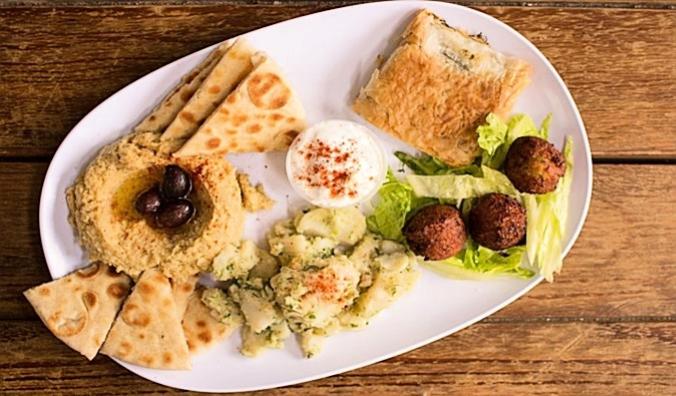
Knowing local customs makes any trip better. In many Middle Eastern and North African cultures, including Egypt, the left hand is traditionally considered less clean. While modern Egyptians are generally accommodating of diverse dining habits, it is a thoughtful gesture to avoid using your left hand when serving food from shared dishes or eating in a group setting.
Do not miss out on trying the amazing Egyptian cuisine, from the popular shawarma and koshari to the traditional ful medames and molokhia. The fertile Nile Delta provides an abundance of fresh produce, ensuring plentiful options for vegetarian and vegan travellers.
Sharing a meal is part of Egyptian hospitality. Be prepared for generous portions, as hosts often express their welcome by overfilling plates. Leaving a little food on your plate is a polite way to show you are full. Washing your hands before and after meals, or using provided wipes, is considered good etiquette.
While public consumption of alcohol is generally discouraged, licensed establishments such as large hotels and high-end restaurants typically serve alcoholic beverages.
For guidance on tipping practices in restaurants, markets, and for tour guides, including recommended amounts and current exchange rates, please refer to our comprehensive Money and Tipping guide. This valuable resource will assist you in budgeting effectively for your trip to Egypt.
Bargaining in Egypt: Tips and Techniques
Get ready to haggle! Bargaining in the souks is a quintessential Egyptian experience. It is a playful back-and-forth, a dance of offers and counter-offers. Do not be afraid to haggle – it is expected!
Tip
Start by offering about half the asking price and work your way up. A good-natured smile and a few Arabic phrases can go a long way. Be polite, friendly, and patient – that is the key to successful bargaining. Avoid being aggressive or confrontational. If a vendor offers you tea, it often signals a willingness to engage in friendly conversation before finalising a sale. However, you are under no obligation to purchase.
If you are buying expensive items like gold jewellery, make sure you agree on the price per gram first. This helps avoid misunderstandings regarding additional charges for labour or intricate designs. Negotiating transport fares, especially for taxis not booked through a ride-sharing app, is also common practice.
Dress Code in Egypt: What to Wear and What to Avoid
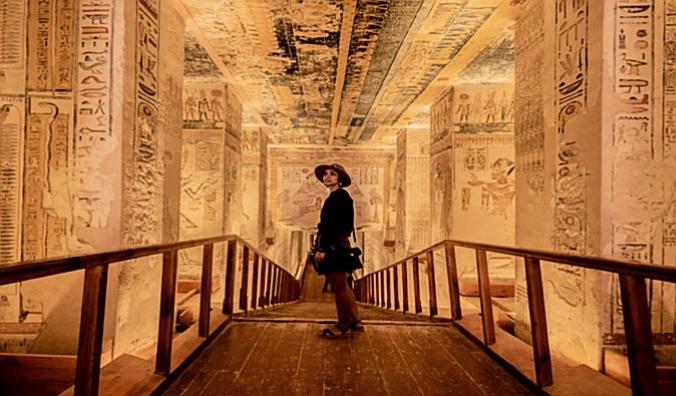
The dress code in Egypt varies depending on location and occasion. While major tourist hubs and Red Sea beach resorts tend to be more relaxed about clothing choices, it is important to be mindful of local customs and dress respectfully, particularly when visiting smaller towns, rural villages, or religious sites.
On our trip to Aswan, we noticed that local women often wore long, flowing dresses called galabeyas. While you do not need to adopt traditional Egyptian clothing, covering your shoulders and knees is a good guideline.
Women should wear loose-fitting tops, trousers, or long skirts that cover their knees. Men are advised to wear trousers and shirts, either short or long-sleeved.
Dressing respectfully shows cultural sensitivity and helps you blend in. Wearing overly revealing clothing may attract stares or, in some less tolerant areas, unwelcome comments.
Comfortable footwear is essential, especially when exploring ancient ruins with uneven terrain.
For information on seasonal variations in temperature and appropriate clothing choices, from the winter chill of Alexandria to the summer heat of Aswan, refer to our detailed Weather Guide, which provides monthly climate breakdowns and helpful packing tips.
Social Customs and Public Behaviour in Egypt
Social customs in Egypt are different from what you might be used to in Western cultures. Egyptian social norms dictate respectful interactions, especially between genders. In public, people who are not related usually keep a respectful distance. In busy cities like Cairo and Alexandria, women-only carriages are available on trains and trams, reflecting local cultural norms.
While Egypt is generally welcoming, harassment is something to be aware of. A study by the Egyptian Center for Women’s Rights (ECWR) indicated that a significant majority of both foreign (96.3%) and local (91.5%) women reported experiencing some form of harassment, ranging from verbal to physical. Projecting confidence and using some basic Arabic can help deter unwanted attention.
However, personal experiences can vary. While some travellers report minimal harassment in cities like Cairo, Alexandria, Hurghada, Sharm El Sheikh, and Marsa Alam, others have noted increased incidents in Luxor. This highlights the importance of remaining aware of your surroundings and understanding local customs.
If you experience harassment, do not hesitate to be assertive. Using Arabic words like khalas (enough), uskut (be quiet), or shouting haram (forbidden or shameful) can attract the attention of bystanders who may intervene.
While Red Sea resort areas tend to be more liberal, it is still advisable to remain vigilant. This also applies to desert oases, where more traditional social norms prevail.
Avoiding Orfi Marriages in Egypt: Protecting Yourself from Exploitation
The following safety tips for Egypt will help you stay safe and informed during your travels.
Do not get involved in Orfi marriages (sometimes referred to as “Dahab marriages”). These unofficial marriages may seem like a way around the rules for unmarried couples, but they are very risky. Understanding the risks of Orfi marriages in Egypt is crucial for protecting yourself.
In tourist destinations such as Luxor, Aswan, some Red Sea areas, and even Cairo, some individuals exploit the Orfi system, engaging in deceptive romantic relationships with foreigners to secure accommodation or financial support. Many individuals entering into these arrangements mistakenly believe they are legally married, leaving them vulnerable to legal and emotional repercussions.
Legally recognised marriage in Egypt requires registration at the Shaar al-Aqari (the official registry) in Cairo. This official process confers legal rights relating to spousal status and custody disputes, protections absent in Orfi marriages. Numerous reports highlight cases of individuals left financially destitute after discovering the limited legal recourse available under Orfi arrangements, making it difficult to recover property or finances.
Furthermore, health risks, including HIV transmission, have been associated with these exploitative networks. Therefore, exercising extreme caution and seeking legal advice before considering any form of unofficial marriage in Egypt is paramount.
Sports in Egypt: Beyond the Football Field
Football (soccer) reigns supreme as Egypt’s most popular sport, uniting millions in a shared passion for their favourite clubs, particularly giants like Al Ahly and Zamalek. This fervent enthusiasm is palpable everywhere, from lively street celebrations and animated coffeehouse debates to the constant buzz across social media. While football’s dominance is undeniable, Egypt’s sporting heritage is rich and diverse.
Looking into the distant past, ancient tomb paintings reveal a long history of athletic pursuits, including gymnastics and martial arts. Contemporary Egyptians enjoy a variety of sports, from equestrian events and exhilarating camel races to aquatic competitions in the Red Sea.
However, the electric atmosphere surrounding football matches, especially during fiercely contested national and local matches, explains its unparalleled popularity. The intense rivalry between Al Ahly and Zamalek, for example, ignites a national fervour that solidifies football’s place at the heart of Egyptian sporting culture.
Discover Egypt’s Weather
Dive Into Our Expert Weather Guide For Perfect Travel Planning
Key Cultural Tips for Navigating Egypt
Understanding local customs enhances any travel experience. Here are some key insights into Egyptian culture:
Dos and Don’ts in Egypt: A Quick Guide to Cultural Etiquette
Understanding cultural etiquette in Egypt is crucial for a smooth and respectful trip. These Egypt travel tips will help you navigate cultural nuances and avoid common pitfalls.
| Cultural Dos | Cultural Do-Nots |
| Dress modestly, especially for women in rural areas or religious sites. | Avoid public displays of affection in extremely conservative locations. |
| Use basic Egyptian Arabic phrases such as marhaba (hello) and shukran (thank you). | Refrain from using the left hand for communal eating or serving if possible. |
| Offer small gifts (chocolates) or sweets to hosts. | Do not rely on Orfi marriage to bypass regulations on unmarried couples. |
| Respect religious traditions, remove shoes in mosques or certain homes if needed. | Avoid disparaging remarks about Islam, Coptic Christianity, or local politics. |
| Negotiate politely in marketplaces and be prepared to walk away if the price seems high. | Do not assume everyone is out to cheat foreign visitors but stay alert to scams. |
| Drink alcohol only in licensed establishments. | Avoid taking photographs of military sites or sensitive areas without permission. |
| Tip bellhops, waiters and guides fairly. (See our Money and Tipping Guide) | Do not be rude if invited to share tea or conversation but politely refuse if you do not wish to participate. |
Frequently Asked Questions (FAQs) about Egyptian customs & Culture
Understanding Egyptian culture goes beyond the typical tourist experience. By following these guidelines, you can enhance your interactions with locals and contribute to a more rewarding and culturally sensitive travel experience in Egypt.
Disclaimer
TrippVibes is an independent platform and is not affiliated with any companies, products, or service providers mentioned in this article. All recommendations are based on unbiased research and are intended to provide helpful information to travellers.
Download our comprehensive planning checklist below and travel with total confidence.
Why trust our advice
At TrippVibes, we fully understand the importance of accurate and dependable information. We have personally encountered the same frustrations caused by misleading reviews and preventable travel obstacles during our own journeys through Egypt.
This is precisely why we are committed to delivering the most current and trustworthy guidance on booking flights and hotels in Egypt. Allow us to help you pave the way to extraordinary travel experiences.
Follow us on Facebook, Instagram and YouTube for more local insights, inspiring trip ideas, and hands-on advice that will help you plan your next adventure with confidence.
Have More Questions or Need Assistance
We are here to help. Feel free to get in touch if you have any additional queries or require further guidance in organising your travel arrangements.
Have insights or tips from your own experience in Egypt? Share them in the comments below to assist your fellow travellers.
You may also want to have a look at our other blogs:
The Ultimate Guide to Booking Flights and Hotels in Egypt: All You Need to Know (2025)
Egypt Weather Guide: Discover When to Visit for the Ultimate Experience
Complete Egypt Money Guide 2024: Cash, Cards & Avoiding Scams
Travel Made Easy: Applying for Your Egypt e-Visa Online (2025)
Exclusive Hotel Reviews – Navigate Egypt with Our Unbiased, Personal Insights (more coming soon!):
Hurghada & Surrounding Areas: Jaz Casa Del Mar Beach | Jaz Soma Beach (previously Solymar Soma Beach) | Jaz Makadina Resort | Jaz Makadi Star & Spa
Marsa Alam: Steigenberger Coraya Beach
Cairo: Staybridge Suites Citystars | Holiday Inn Citystars
Alexandria: Steigenberger Cecil Hotel

About Us
Hello from TrippVibes!
We are passionate about guiding you to unforgettable, authentic travel. With over two decades of collective firsthand global exploration, our seasoned experts share honest, unbiased advice and those ‘little secrets’ that craft truly immersive journeys. All our travel is independently funded – just real experiences, honestly shared.
Explore Our Destination Guides
Meet Us & Our Travel Philosophy
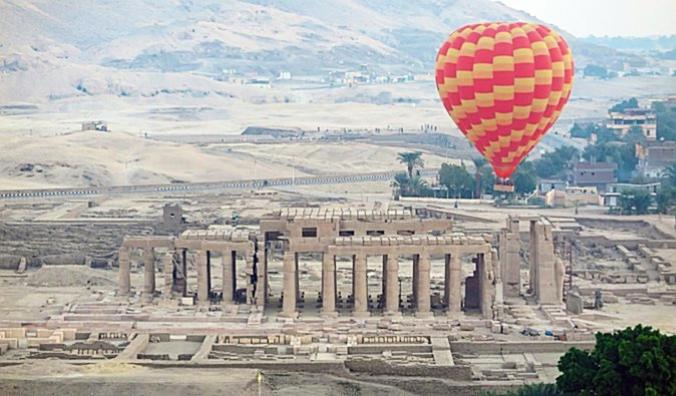
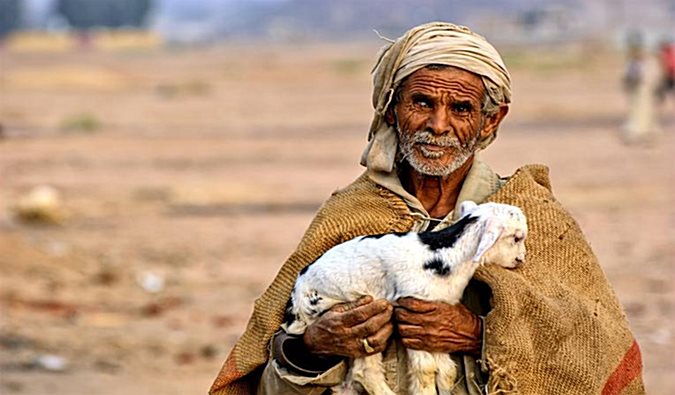
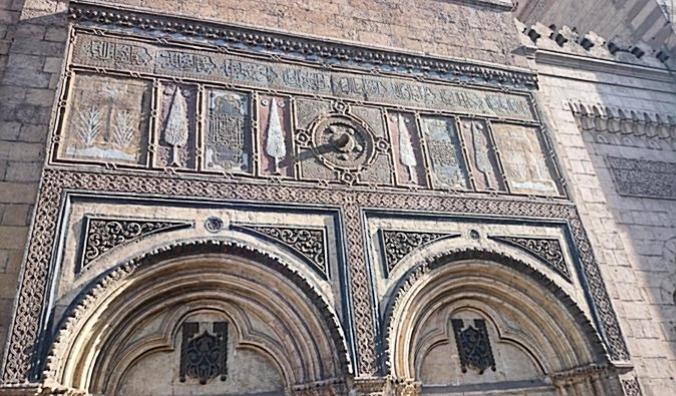
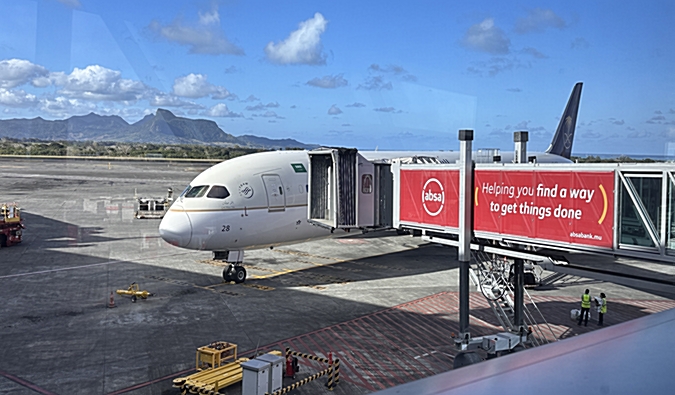
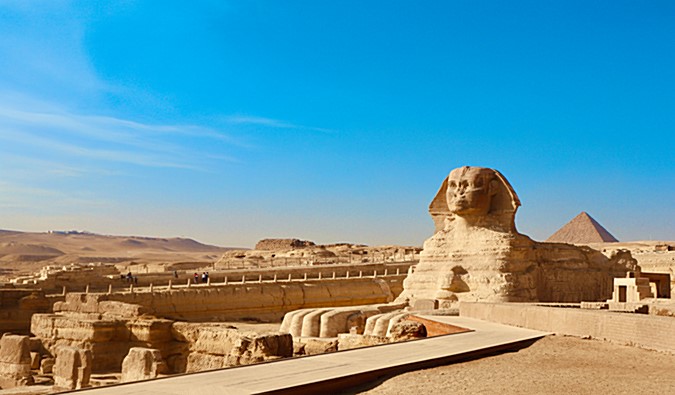
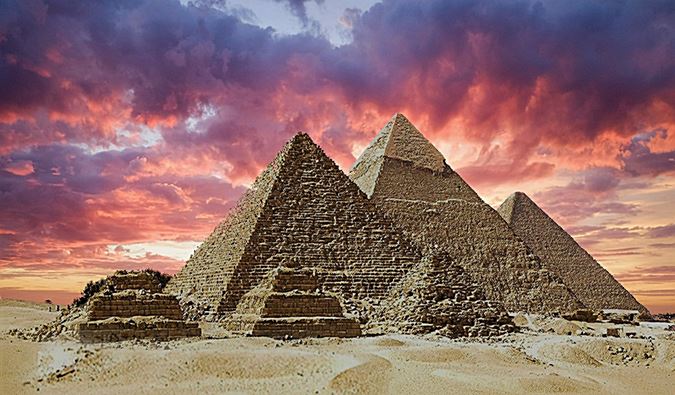
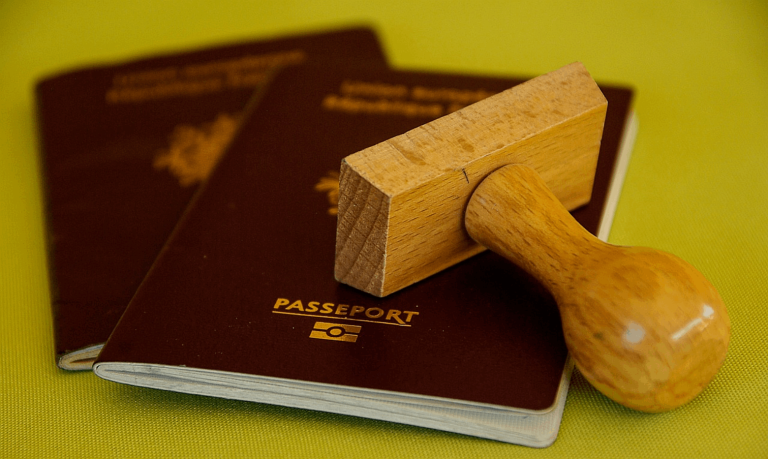
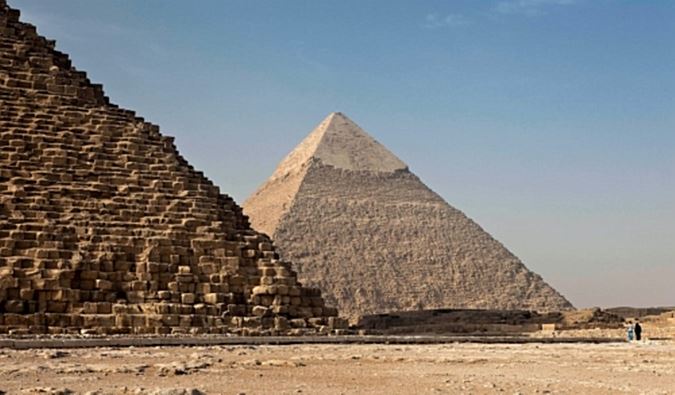
Leave a Reply